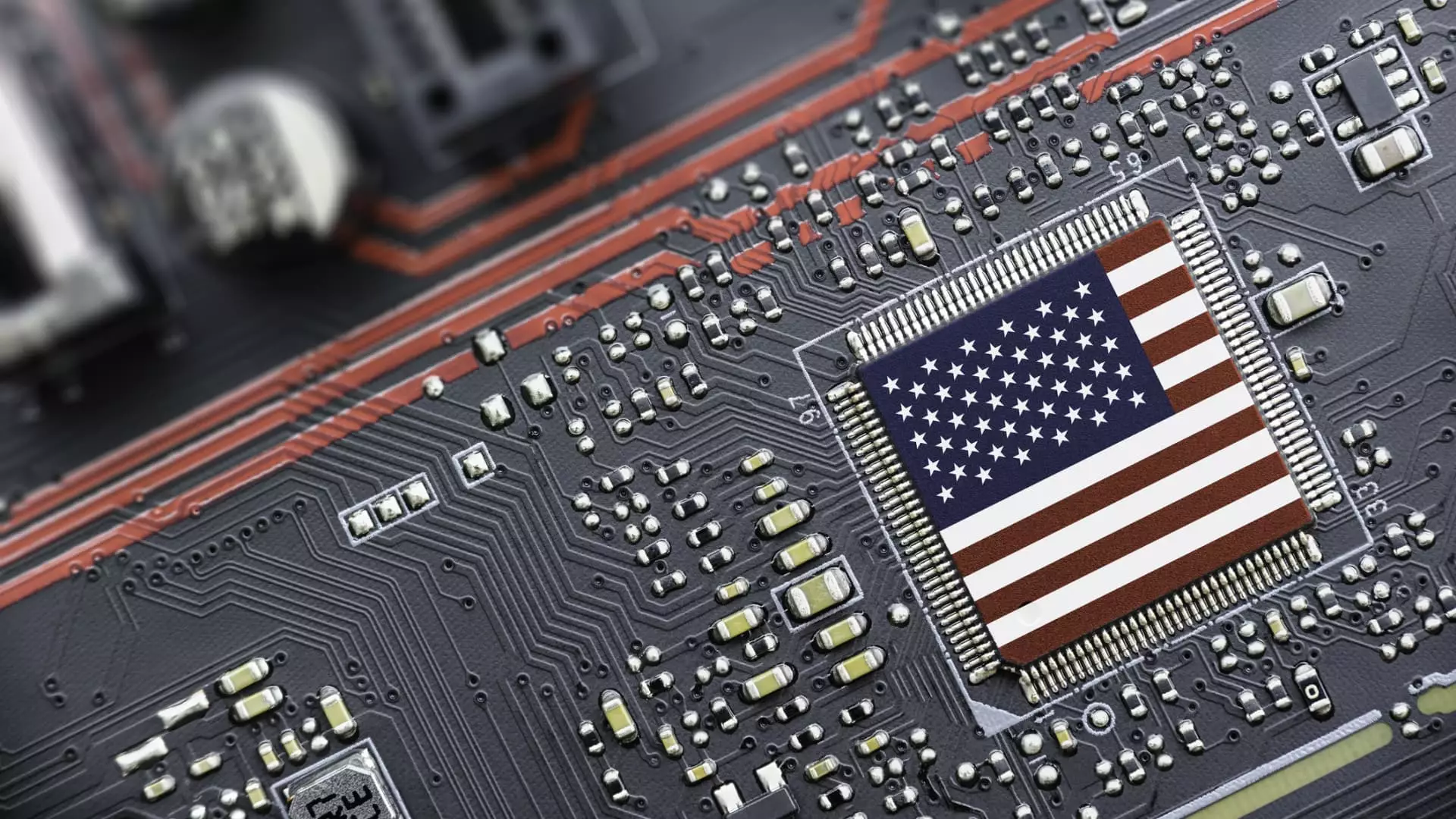In recent developments, the U.S. Commerce Department has initiated a substantial inquiry into the nation’s reliance on semiconductor imports, citing national security concerns. This investigation, highlighted in a Federal Register notice, marks a pivotal move in the ongoing narrative surrounding global trade relations and domestic technological self-sufficiency. Coming under the spotlight, this investigation examines the feasibility of enhancing domestic semiconductor production capabilities—a critical sector that influences almost every electronic device used today.
Contrary to previous public assurances that certain semiconductor-related products would be exempt from the tariff frameworks outlined by President Donald Trump, this inquiry suggests a more rigorous approach is on the horizon. The investigation spans an extensive array of items from silicon wafers to chipmaking apparatus and downstream products, encapsulating the multifaceted industry that semiconductors represent.
The Implications for Global Trade Practices
The ramifications of this investigation stretch far beyond the confines of national borders. As it stands, semiconductors are not only the backbone of ordinary electronics but also the driving force behind innovations in artificial intelligence, 5G technology, and advanced manufacturing processes. By strengthening the domestic semiconductor landscape, the United States not only aims to safeguard its economic interests but also solidifies its position in the rapidly evolving global tech race.
President Trump’s administration has framed tariffs on foreign semiconductor products as a protective measure under Section 232 of the Trade Expansion Act of 1962. This legal framework enables the government to impose tariffs when national security is perceived to be at risk. While the rationale for such tactics appears to be grounded in safeguarding American interests, the underlying implications of a trade war could stir significant concern among domestic manufacturers and consumers alike.
The Push for Increased Domestic Production
At the heart of the Commerce Department’s investigation lies a critical objective: reducing America’s dependency on foreign semiconductor technologies. With countries like Taiwan, South Korea, and the Netherlands currently supplying much of the essential technology, the US has found itself at the mercy of international supply chain vulnerabilities. The advent of this investigation coincides with strategic investments like the $280 billion CHIPS and Science Act, aimed at bolstering domestic semiconductor capabilities through incentives and funding.
High-profile companies, including Nvidia, are already responding to this push for domestic production. Nvidia’s recent commitment to establishing factories capable of manufacturing AI supercomputers entirely within the U.S. showcases the dynamic shift towards local innovation. Such moves not only signal corporate confidence in the U.S. semiconductor strategy but also represent a significant counter to the geopolitical tensions underpinning the current global trade landscape.
Balancing Innovation with Protectionism
While the intentions behind the semiconductor investigation are laudable—seeking to invigorate American innovation and manufacturing—the potential risks of protectionism must not be overlooked. Tariffs and stricter import controls could lead to increased costs for manufacturers and, consequently, consumers. If the cost burdens are shifted downstream, American consumers may find themselves paying a premium for domestically manufactured products, potentially stifling the very innovation the investigation aims to promote.
Moreover, the dichotomy between supporting domestic production and maintaining competitive pricing in a global market presents a formidable challenge. Businesses will need to navigate this fine line carefully to avoid unintended repercussions on their bottom lines. There’s also a palpable worry about over-reliance on federal support, raising questions about the sustainability of such investments in the long term.
Final Thoughts
The ongoing investigation into semiconductor imports by the U.S. Commerce Department is a reflection of the growing necessity for technological self-reliance and national security in an increasingly interconnected world. The push for domestic production amid global trade tensions is a call to action, challenging America to innovate while remaining vigilant about the consequences of overprotective measures. As companies adapt to this evolving landscape, the conversations surrounding tariffs, local manufacturing, and the overarching ethos of American innovation will undoubtedly set the tone for the future of the semiconductor industry and beyond.

